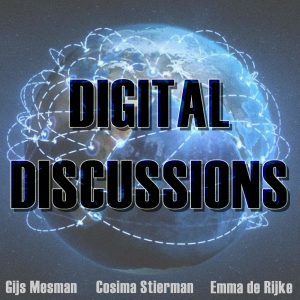When I am bored, I sometimes find myself scrolling down the list of my Whatsapp contacts while looking at new profile pictures and statuses. A while ago, I was exactly doing that, when I interrupted my scrolling to read a status from my friend. It said: “Hey there! Whatsapp is using me.”[1] At first I had to laugh about my friend’s humorous variation on the regular “Hey there! I am using Whatsapp” status phrase. However, it also made me think about its rather serious undertone. How can the act of simply switching around the subject and object in a sentence make me think so deeply about my relationship towards the digital? Nonetheless my friend’s status puts forward an interesting question: Who is controlling what? Or put differently: Are we in control of the digital? Or are we controlled by the digital?
The hype of Flappy Bird
Let me explain the latter in connection to the game Flappy Bird, which became an immensely popular app after its launch in 2013. The concept is simple: fly your bird as many times through openings without hitting a pipe. Despite or maybe even due to its simplicity, Flappy Bird caused so much addiction and frustration amongst its users that it was eventually taken off the market in 2014 to make an end to the hype that was getting out of hand. It is quite shocking to remark that one simple game could impact the world and our behavior in such a way. I could relate to it too: with a mix of frustration and motivation I kept playing over and over again trying to beat my high score of 324 without me knowing how to stop. Something caused me to feel subservient to the app. Somehow I kept playing the game, even though I knew my addiction did not make sense. As a consequence, a feeling of being controlled by the digital made me feel powerless, in some cases even resulting in extreme anger towards my phone. From this perspective it sounds reasonable that something built-in in the app’s structure causes us to react on the digital and makes us behave in a certain way, making us subject to the digital.

From frustration to inspiration
Every time I see “Password incorrect, you have 1 attempt left” flickering on my screen, a sudden rush of anxiety and panic takes over my formerly relaxed state of mind.
Another example of technological frustration is failing to log in on an account. Every time I see “Password incorrect, you have 1 attempt left” flickering on my screen, a sudden rush of anxiety and panic takes over my formerly relaxed state of mind. A similar event happened to me yesterday, when I was trying to log in on this blogging page and failed to log in twice. Dwelling in my feelings of frustration, and fearing that my account might have been blocked, I suddenly noticed how my mind was so occupied by this minor event that it had completely lost any sense of rational thinking.
By not letting me log in, the digital had disabled me to act in a way that I planned to, namely: to upload a blog. In this way, the digital algorithm exerts power over me and limits my behavior to an undesirable extent. However, I believe that the evoked emotions after the event are neither directly caused by the technological device nor its algorithmic structure. As soon as I noticed what happened to my emotional state, I could transform my frustration into inspiration. Feelings of frustration became the starting point for this blogpost, therefore making it in fact useful to experience the feeling of powerlessness. I made an interesting observation: the digital was controlling my state of mind up until the moment I distanced my mind from the thoughts popping up after the event. At that point, I took over the power to control my own behavior. The only crucial step between ‘being controlled by the digital’ and ‘taking over control’ is a short mindful observation.
If we can have power over our thought, we can even conclude that there exists no such thing as the digital taking over humanity. More nuanced: the digital may restrict us on the way we (inter)act, but we can always choose in what way we respond to the position we find ourselves in, giving us the freedom to respond in multiple ways. So, what in fact makes you smash a phone to pieces, slam a keyboard or swear at a mouse? Is that really the digital? Or is it you?
[1] Joost van Luijk’s Whatsapp status, used with permission.



Recent Comments